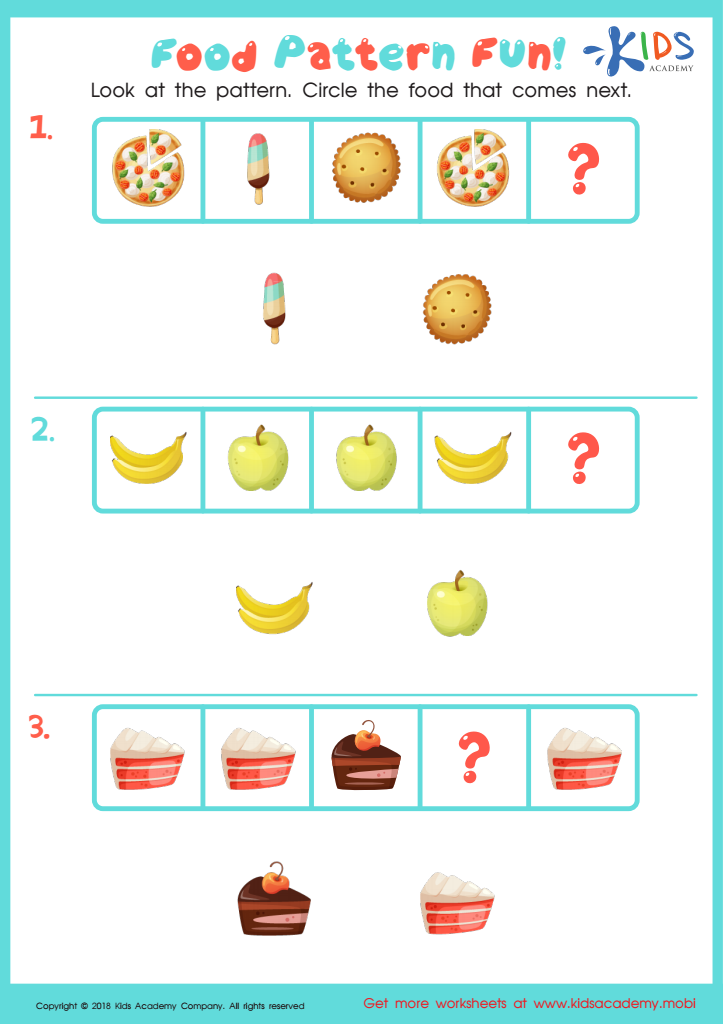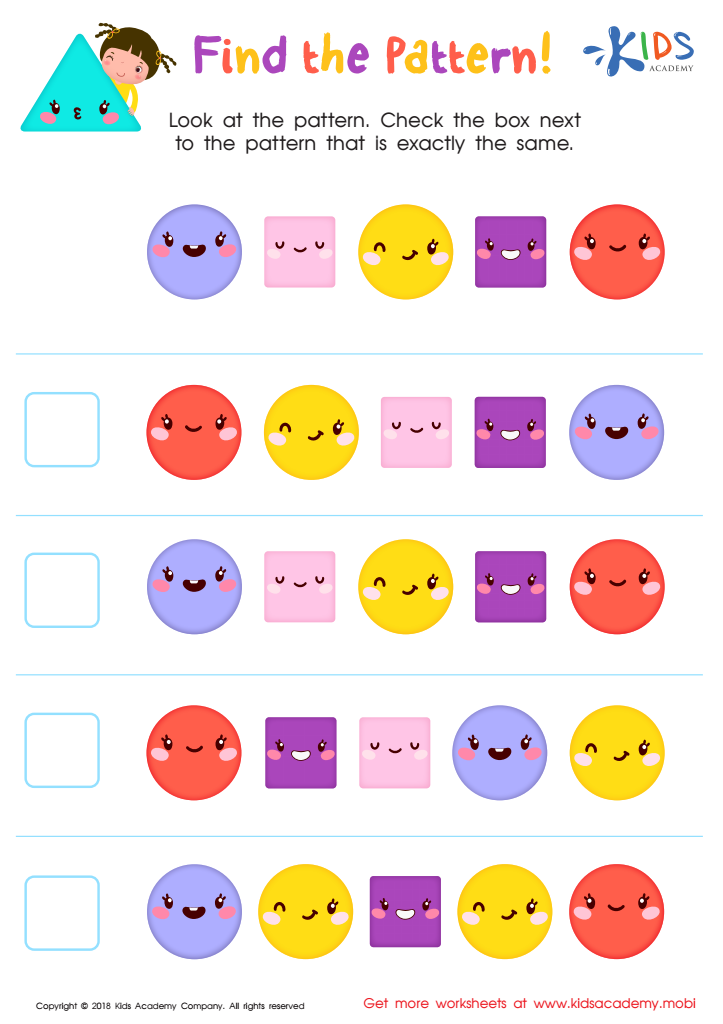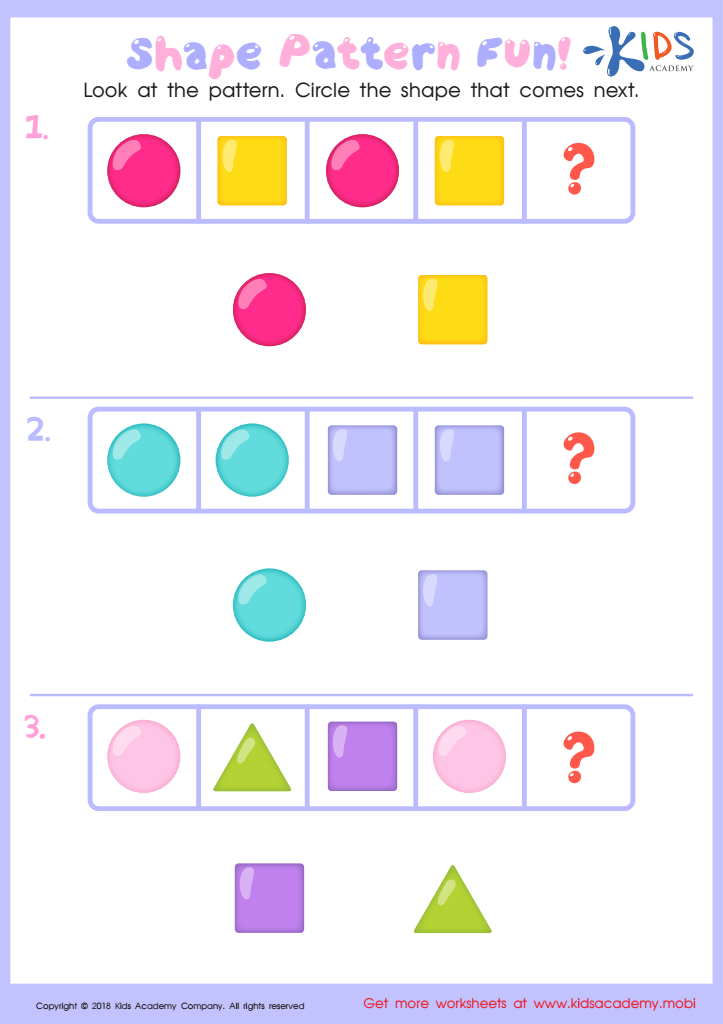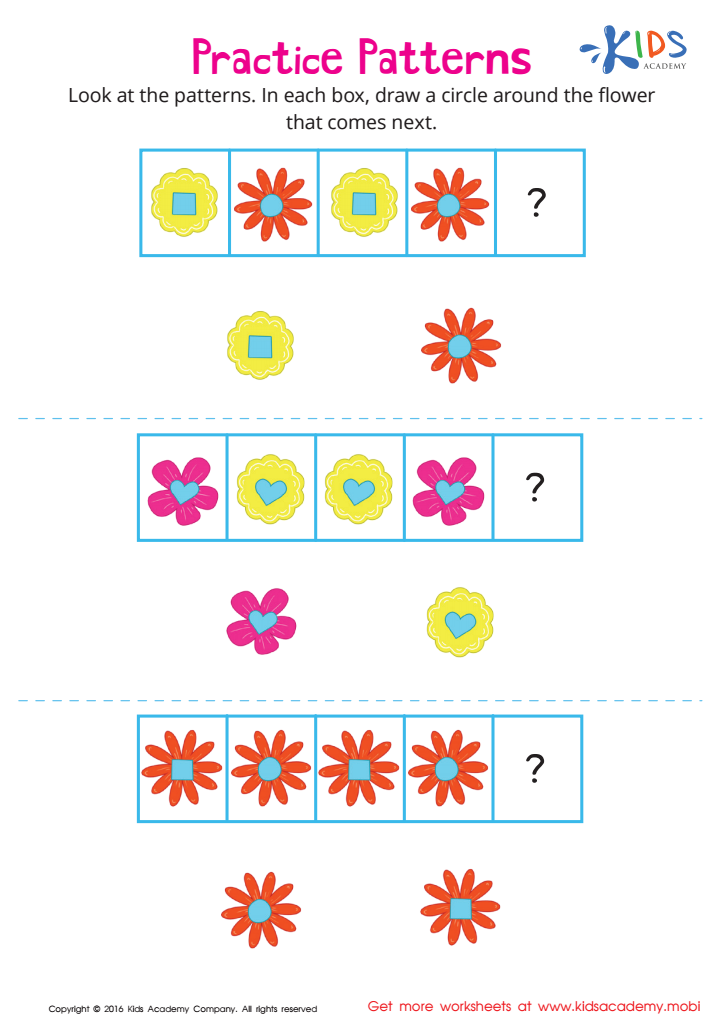Pattern recognition Normal Matching Worksheets for Ages 5-7
6 filtered results
-
From - To
Explore our engaging Pattern Recognition Normal Matching Worksheets designed specifically for children ages 5-7. These worksheets help young learners enhance their critical thinking and observational skills by identifying and matching patterns in a fun, interactive way. Each activity is thoughtfully crafted to promote cognitive development, encouraging kids to recognize sequences and develop logical reasoning. With colorful illustrations and age-appropriate challenges, your child will be excited to practice while building essential math skills. Perfect for classroom use or at-home learning, these worksheets make learning enjoyable and effective. Download and get started today to support your child's journey in pattern recognition!


Food Pattern Fun Worksheet


Find the Pattern Worksheet


Make the Same Pattern Worksheet


Logic Game Sorting Worksheet


Shape Pattern Fun Worksheet
Pattern recognition plays a crucial role in cognitive development, especially for children aged 5-7. During these formative years, children are naturally curious and eager to learn, making it an ideal time for them to develop foundational skills in recognizing patterns. By identifying similarities and differences in shapes, colors, numbers, and sequences, children enhance their critical thinking abilities and boost their problem-solving skills.
Understanding pattern recognition is essential for grasping more complex math concepts later, such as addition, subtraction, and algebra. Moreover, it lays the foundation for skills needed in reading, as children learn to recognize letter patterns and sounds.
Parents and teachers should prioritize normal matching exercises, which are engaging activities that help children categorize and sort, reinforcing their understanding of relationships within the environment. These activities can make learning fun while fostering creativity and independent thinking.
Equipped with strong pattern recognition skills, children can better navigate the world around them, leading to greater academic success and a lifelong love for learning. Engaging in pattern recognition activities provides a holistic approach to child development, ensuring children are well-prepared for future educational challenges and everyday life.
 Assign to My Students
Assign to My Students

















